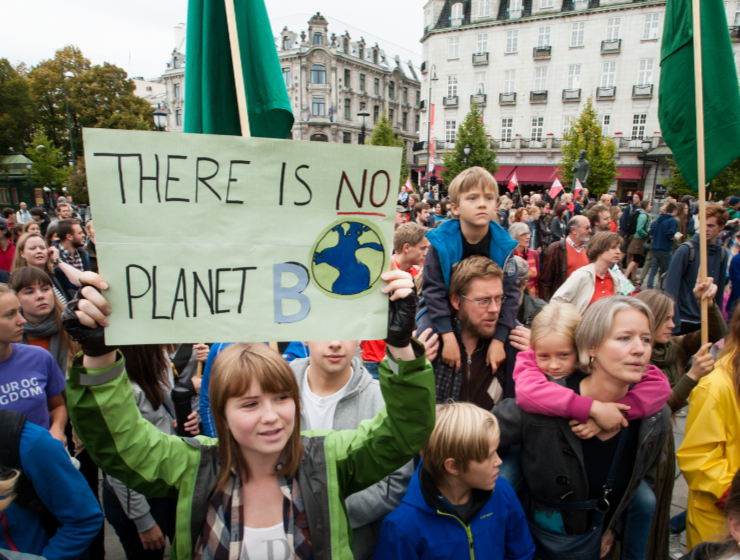Democratic Backsliding Is A Threat To The Natural World

There is much hand wringing happening worldwide about the fragility of democracies. In December 2021, U.S. President Biden invited world leaders to what he called the First Summit for Democracy. While the purpose, invitees and the discussions were undoubtedly questionable, the fact that global the image and prestige of democracy is weaker is most certainly the case. Democracy’s promises about spreading affluence began to ring hollow decades ago with the evidence that all too often political decisions are stacked in favour of the already fortunate.
In 2014, American political scientists published a ground-breaking peer-reviewed paper, analysing 30 years’ worth of US policy-making that compared policy outcomes to public polling results. They found that general public sentiment had almost no impact on US policy making – but the political preferences of wealthy people and large corporations were hugely predictive of what laws and regulations were implemented by the government. Their conclusion being “Economic elites and organised groups representing business interests have substantial independent impacts on U.S. government policy, while average citizens and mass-based interest groups have little or no independent influence.”
While this research was done for the USA and can’t be readily generalised to other so-called advanced western democracies, because of differences in electoral systems and campaign financing, undoubtedly intensive investor and business lobbying on policy development has favoured shareholder and company interests in the last 30 years.
Australian Prime Minister Albanese last year warned democracies around the world are under threat from “corrosive, insidious forces”. Whilst he did not name business lobbying as such a force, his concern is such that he is not only backing the new National Anti-Corruption Commission to protect Australia’s political system but has also created a Strengthening Democracy Taskforce.
Historically, democracy is known to ebb and flow. What is interesting is that the numerous discussions are acknowledging this current retreat is happening globally. The talk is about widespread democratic backsliding and executive aggrandisement. Governments in Western democracies are increasingly blatant in passing policies that preference business interests and the wealthy over the concerns of the public. The revolving door between business and government is turning incessantly and creating the impression that the boundary between government and business interests has been effectively dissolved.
Representative democracy is based on trust, so what happens when too many people think the way governments are preferencing narrow interests are making existential problems worse? Inequality is growing, the decades long inertia in tackling the climate crisis and biodiversity loss means that globally we are reaching a tipping point.
More people believe that their needs and wants are not being represented in their parliaments and the data shows their observations are valid.
For example, in Australia, a recent publication, Inequality on Steroids, by the Australia Institute found that 93% of the benefits of economic growth between 2009 and 2019 went to the top 10%, while the bottom 90% received just 7%.
The fact people believe that they are not being represented in their parliaments is only made worse when our political representatives centralise decision making to the executive office, as seen with Australian Prime Ministers and Premiers. The role of the public service has not only been seriously undermined, but much of the work has also been outsourced to global consulting firms and a small number of private sector companies. These entities can be relied upon to produce the ‘right’ advice, as their fees and ongoing contract depend on pleasing their political masters.
The 2018 Grattan Institute report, Who’s in the room? Access and influence in Australian politics, concluded that powerful groups have triumphed over the public interest in some recent debates, and stronger checks and balances on policy influence are needed, to make Australian politics cleaner and fairer. Yet in the intervening years the influence of business has increased, as governments opened the door and invited in those with too much invested into acting on behalf of corporate interests to further their own.
Yes, our democracies are under threat, but these threats are not only from external forces. They come from within as the current strategy of policy development continues to take us down a path where governments find it easier to imagine the end of the world than the end of capitalism.
It is not strictly correct to say our political systems are broken, they have been designed this way. But the external context has changed. Government policies which continue to accept excessive and unchecked consumption need to be addressed quickly given the number of tipping points on the horizon.
What is needed to refresh democracy and bring about the new politics of the common good, both social and environmental? Certainly, the last decade has shown the problems of digital demoralisation. The growing distrust of social media has only increased the public’s disenchantment with politics; restoring belief in democracy isn’t about a grand parliamentary chatroom. I think we can conclude now that social media is not going to play any positive role in restoring democracy, as was assumed in its heyday around 2011. Social media have instead cultivated echo chambers and preferenced shouting over meaningful dialogue.
What are some of the very real and pragmatic ways we can rebalance democracy? The next article in this series will explore the opportunities of our parliaments moving to decision making informed by Citizens Assemblies and not Global Management Consultants.

Lynn Johnson is a physicist by education and has worked as an executive coach and a strategy consultant for over 20 years. In her work she pushes for systemic change, not piecemeal solutions, this includes campaigning for modernising the legal trade in endangered species, to help tackle the illegal wildlife trade.






